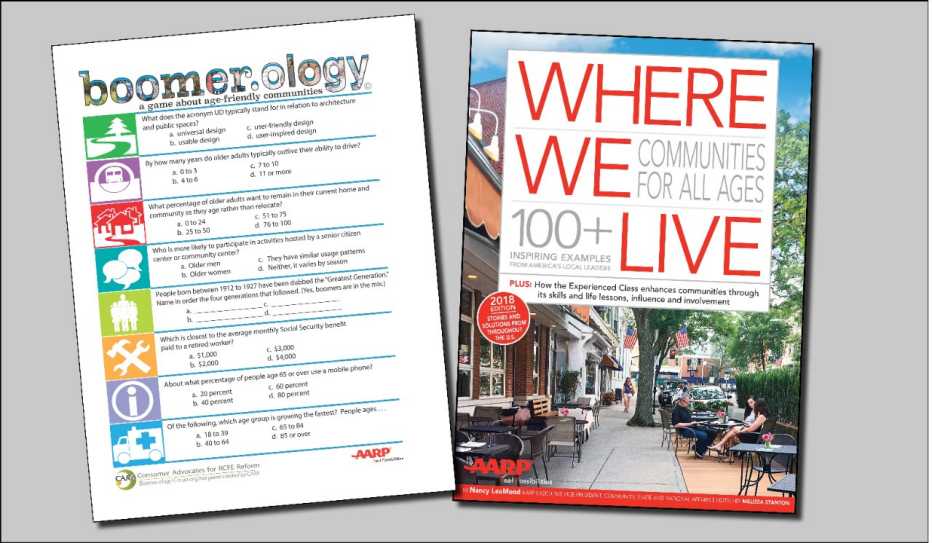AARP Hearing Center


To raise awareness about the needs of older adults and the ways communities can be age-friendlier for people of all ages, CARR, a San Diego, California-based consumer advocacy organization, applied for and received an AARP Community Challenge "quick-action" grant to create Boomer.ology, a conversation-starting board game. CARR brings the game to public events and presentations.
Test your knowledge — and start conversations about age-friendliness, boomers and more — by answering the sample questions below. (Those of a certain age might recognize the Trivial Pursuit-inspired game card.)































.jpg?crop=true&anchor=13,195&q=80&color=ffffffff&u=lywnjt&w=2008&h=1154)


























